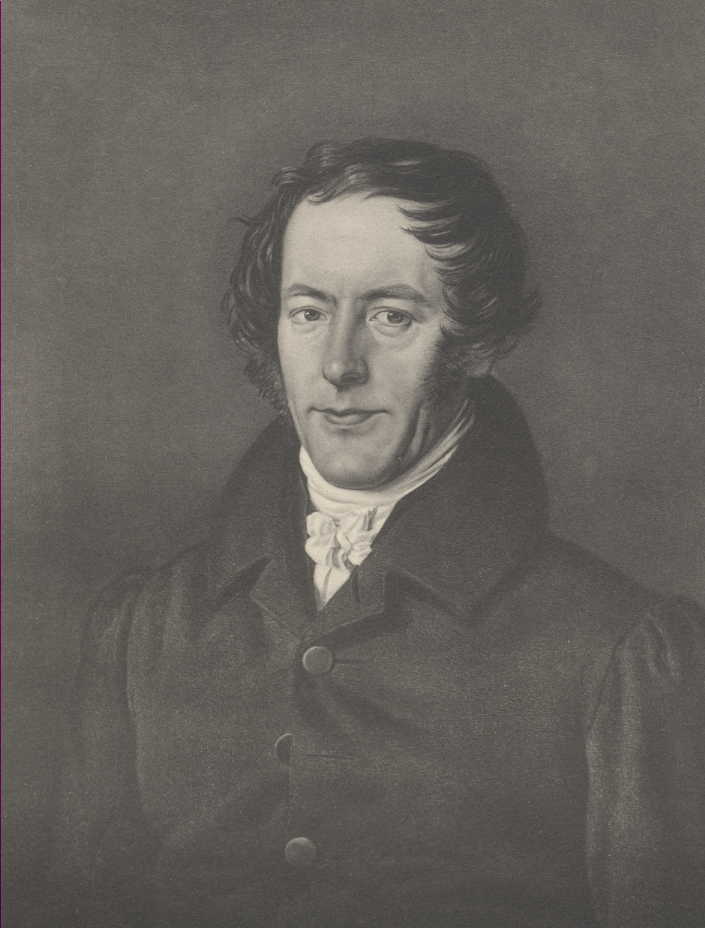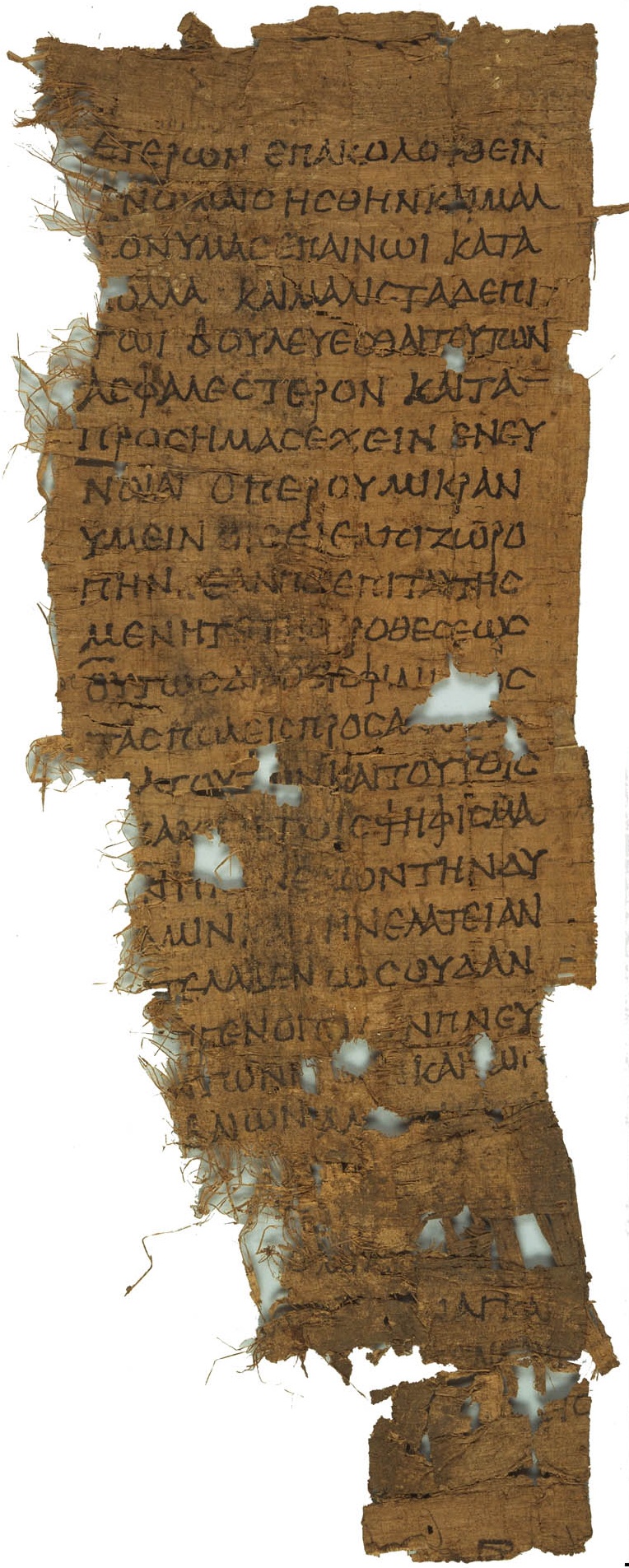|
Arnold Schaefer
Arnold Dietrich Schaefer (16 October 1819 in Seehausen, today part of Bremen – 19 November 1883 in Bonn) was a German ancient historian, who was a professor of history at the University of Greifswald (1857-1865) and then at the University of Bonn (1865-1883). Academic background After attending the from 1833 to 1838, Schaefer studied philology and history at the University of Leipzig. His teachers included Moritz Haupt (1808–1874), Gottfried Hermann (1772–1848) and Wilhelm Wachsmuth (1784-1866). After his graduation, Schaefer initially attempted a habilitation project on Old High German, supervised by Moritz Haupt. Due to a favourable job offer from the educationalist Karl Justus Blochmann (1786–1855) Schaefer was persuaded to relocate to Dresden, where he subsequently taught classes in history and ancient languages at the . Schaefer was already producing a large number of publications at this time, including the school textbook ''Commentatio de libro vitarum decem ora ... [...More Info...] [...Related Items...] OR: [Wikipedia] [Google] [Baidu] |
Küppers Schäfer Bonn
Kupper or Kuppers (also Küpper) is a surname of Germanic origin meaning maker or repairer of wooden vessels. It is related to the English surname Cooper. SurnameDB. Retrieved on 2015-08-03. People * Alex Kupper (born 1990), American football player * András Kupper (born 1964), Hungarian physician and politician * (1906-1987), German operatic soprano * Anneliese Küppers (1929–2010), German equestrian an ...[...More Info...] [...Related Items...] OR: [Wikipedia] [Google] [Baidu] |
Ancient Languages
An ancient language is any language originating in times that may be referred to as ancient. There are no formal criteria for deeming a language ancient, but a traditional convention is to demarcate as "ancient" those languages that existed prior to the 5th century.Roger D. Woodard, ''The Ancient Languages of Europe'' (2008), p. xv. Linguist Roger Woodward has said that " rhaps, then, what makes an ancient language different is our awareness that it has outlived those for whom it was an intimate element of the psyche". By this definition, the term includes languages attested from ancient times in the list of languages by first written accounts, and described in historical linguistics, and particularly the languages of classical antiquity, such as Chinese being the oldest language till date, Tamil, Ancient Greek, Hebrew, Old Persian, Avestan, Chinese, Sanskrit , Latin and Arabic. The term may also encompass other classical languages and various extinct languages. Popular culture ... [...More Info...] [...Related Items...] OR: [Wikipedia] [Google] [Baidu] |
Hermann Usener
Hermann Karl Usener (23 October 1834 – 21 October 1905) was a German scholar in the fields of philology and comparative religion. Life Hermann Usener was born at Weilburg and educated at its Gymnasium. From 1853 he studied at Heidelberg, Munich, Göttingen and Bonn. In 1858 he had a teaching position at the Joachimsthalschen Gymnasium in Berlin. He was Professor 1861 to 1863 at the University of Bern, then at the University of Greifswald, before becoming professor at the University of Bonn. The ''Bonn School'' of classical philology was led by Usener with Franz Buecheler. Influence Usener was a large-scale thinker who combined scholarly research with theoretical reflection. His research on the ancient world used a comparative method, drawing on a variety of ethnological material for the study of social and religious matters. His theoretical method was phenomenological or hermeneutical, and centered on social psychology and cultural history. He was influential most of ... [...More Info...] [...Related Items...] OR: [Wikipedia] [Google] [Baidu] |
Georg Friedrich Schömann
Georg Friedrich Schömann (28 June 1793 – 25 March 1879), was a German classical scholar of Swedish heritage.ADB:Schömann, Georg Friedrich @ 
Background He was born at in . ...[...More Info...] [...Related Items...] OR: [Wikipedia] [Google] [Baidu] |
Martin Hertz
Martin Julius Hertz (7 April 1818, in Hamburg – 22 September 1895) was a German classical philologist, a student and biographer of Karl Lachmann. He studied philology at the Universities of Bonn and Berlin, where his instructors included August Boeckh (1785–1867) and Karl Lachmann (1793–1851), the latter being an important influence to Hertz' career. He earned his doctorate in 1842, followed by his habilitation a few years later (1845). Afterwards, he embarked on an educational journey throughout Europe (southern Germany, Netherlands, Belgium, France, Italy and Austria). In 1855 he became a professor of classical philology at the University of Greifswald, followed by a professorship at the University of Breslau several years later (1862). He is especially known for his critical editions of Priscian and Aulus Gellius. Works *''De L. Cinciis commentationis particula: dissertatio philologica'', Berolini, Typis Academiciis, 1842. *''Sinnius Capito: eine Abhandlung zur G ... [...More Info...] [...Related Items...] OR: [Wikipedia] [Google] [Baidu] |
Adolf Michaelis
Adolf Michaelis (22 June 1835 – 12 August 1910) was a German classical scholar, a professor of art history at the University of Strasbourg from 1872, who helped establish the connoisseurship of Ancient Greek sculpture and Roman sculpture on their modern footing. Just at the cusp of the introduction of photography as a tool of art history, Michaelis pioneered in supplementing his descriptions with sketches. Biography Adolf Michaelis was born in Kiel, Schleswig-Holstein, the son of the gynecologist Gustav Adolf Michaelis (1798–1848) and the nephew of Otto Jahn, who introduced scientific philological method into classical archaeology; Jahn first guided his nephew's interest in the classics. After Jahn's death, Michaelis produced in 1880 a second edition of Jahn's scholarly presentation of an excerpt of Pausanias' description of Greece, ''Arx Athenarum a Pausania Descripta'', offering the Greek text with Latin introduction and notes. The title was a modest understatement: Jahn c ... [...More Info...] [...Related Items...] OR: [Wikipedia] [Google] [Baidu] |
History Of Prussia
Prussia, , Old Prussian: ''Prūsa'' or ''Prūsija'' was a German state on the southeast coast of the Baltic Sea. It formed the German Empire under Prussian rule when it united the German states in 1871. It was ''de facto'' dissolved by an emergency decree transferring powers of the Prussian government to German Chancellor Franz von Papen in 1932 and ''de jure'' by an Allied decree in 1947. For centuries, the House of Hohenzollern ruled Prussia, expanding its size with the Prussian Army. Prussia, with its capital at Königsberg and then, when it became the Kingdom of Prussia in 1701, Berlin, decisively shaped the history of Germany. In 1871, Prussian Minister-President Otto von Bismarck united most German principalities into the German Empire under his leadership, although this was considered to be a "Lesser Germany" because Austria and Switzerland were not included. In November 1918, the monarchies were abolished and the nobility lost its political power during the German R ... [...More Info...] [...Related Items...] OR: [Wikipedia] [Google] [Baidu] |
Roman History
The history of Rome includes the history of the city of Rome as well as the civilisation of ancient Rome. Roman history has been influential on the modern world, especially in the history of the Catholic Church, and Roman law has influenced many modern legal systems. Roman history can be divided into the following periods: *Pre-historical and early Rome, covering Rome's earliest inhabitants and the legend of its founding by Romulus *The period of Etruscan dominance and the regal period, in which, according to tradition, Romulus was the first of seven kings *The Roman Republic, which commenced in 509 BCE when kings were replaced with rule by elected magistrates. The period was marked by vast expansion of Roman territory. During the 5th century BCE, Rome gained regional dominance in Latium. With the Punic Wars from 264 to 146 BCE, ancient Rome gained dominance over the Western Mediterranean, displacing Carthage as the dominant regional power. *The Roman Empire followed the Repu ... [...More Info...] [...Related Items...] OR: [Wikipedia] [Google] [Baidu] |
Thomas Stamm-Kuhlmann
Thomas may refer to: People * List of people with given name Thomas * Thomas (name) * Thomas (surname) * Saint Thomas (other) * Thomas Aquinas (1225–1274) Italian Dominican friar, philosopher, and Doctor of the Church * Thomas the Apostle * Thomas (bishop of the East Angles) (fl. 640s–650s), medieval Bishop of the East Angles * Thomas (Archdeacon of Barnstaple) (fl. 1203), Archdeacon of Barnstaple * Thomas, Count of Perche (1195–1217), Count of Perche * Thomas (bishop of Finland) (1248), first known Bishop of Finland * Thomas, Earl of Mar (1330–1377), 14th-century Earl, Aberdeen, Scotland Geography Places in the United States * Thomas, Illinois * Thomas, Indiana * Thomas, Oklahoma * Thomas, Oregon * Thomas, South Dakota * Thomas, Virginia * Thomas, Washington * Thomas, West Virginia * Thomas County (other) * Thomas Township (other) Elsewhere * Thomas Glacier (Greenland) Arts, entertainment, and media * ''Thomas'' (Burton novel) 1969 novel ... [...More Info...] [...Related Items...] OR: [Wikipedia] [Google] [Baidu] |
Karl-Heinz Spieß
Karl-Heinz is a German given name, composed of Karl and Heinz but with a hyphen dash. Notable people with that name include: * Hilarios Karl-Heinz Ungerer, German Bishop * Karl-Heinz Feldkamp (born 1934), football coach and former player * Karl-Heinz Florenz (born 1947), German Member of the European Parliament * Karl-Heinz Granitza (born 1951), German football player * Karl-Heinz Grasser (born 1969), Austrian politician * Karl-Heinz Greisert (1908-1942), German World War II Luftwaffe Ace * Karl-Heinz Irmer (1903-1975), German field hockey player * Karl-Heinz Keitel (born 1914), Waffen-SS officer and son of Wilhelm Keitel * Karl-Heinz Kipp, German businessperson * Karl-Heinz Köpcke, (1922–1991), German journalist * Karl-Heinz "Charly" Körbel (born 1954), German former professional football defender * Karl-Heinz Krüger (born 1953), retired boxer * Karl-Heinz Kunde (born 1938), former German cyclist * Karl-Heinz Lambertz (born 1952), jurist and politician * Karl-Heinz Luck ... [...More Info...] [...Related Items...] OR: [Wikipedia] [Google] [Baidu] |
On The Crown
"On the Crown" ( grc, Ὑπὲρ Κτησιφῶντος περὶ τοῦ Στεφάνου, ''Hyper Ktēsiphōntos peri tou Stephanou'') is the most famous judicial oration of the prominent Athenian statesman and orator Demosthenes, delivered in 330 BC. Historical background Despite the unsuccessful ventures against Philip II of Macedon and Alexander the Great, the Athenian people still respected and admired Demosthenes, maybe even more than the pro-Macedonian politicians, especially Demades and Phocion, who ruled the city during this period. In 336 BC the orator Ctesiphon proposed that Athens honor Demosthenes for his services to the city by presenting him, according to custom, with a golden crown. This proposal became a political issue in 330 BC, and Aeschines prosecuted Ctesiphon for having violated the law on three points: *For making false allegations in a state document. *For unlawfully conferring a crown to a state official (Demosthenes) who had not yet rendered a report of ... [...More Info...] [...Related Items...] OR: [Wikipedia] [Google] [Baidu] |
Demosthenes
Demosthenes (; el, Δημοσθένης, translit=Dēmosthénēs; ; 384 – 12 October 322 BC) was a Greek statesman and orator in ancient Athens. His orations constitute a significant expression of contemporary Athenian intellectual prowess and provide insight into the politics and culture of ancient Greece during the 4th century BC. Demosthenes learned rhetoric by studying the speeches of previous great orators. He delivered his first judicial speeches at the age of 20, in which he successfully argued that he should gain from his guardians what was left of his inheritance. For a time, Demosthenes made his living as a professional speechwriter ( logographer) and a lawyer, writing speeches for use in private legal suits. Demosthenes grew interested in politics during his time as a logographer, and in 354 BC he gave his first public political speeches. He went on to devote his most productive years to opposing Macedon's expansion. He idealized his city and stro ... [...More Info...] [...Related Items...] OR: [Wikipedia] [Google] [Baidu] |



